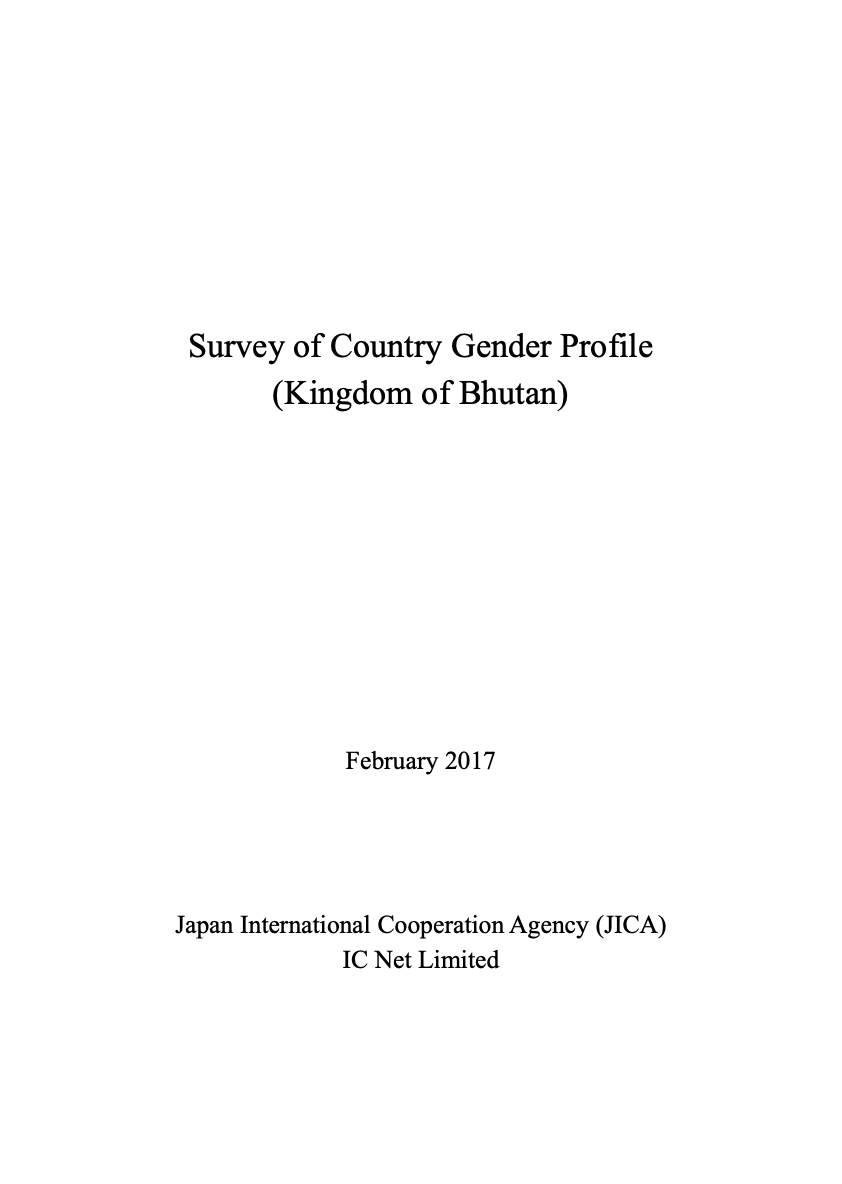Resource information
International aid communities have recognized women’s participation in development and the improvement of women’s status in the developing countries as a key issue since the 1960s, and the concept of “Women in Development (WID)” has been emphasised as a development agenda in the 1970s. In the 1980s, with the newly proposed concept of “Gender and Development (GAD)”, an effort for “gender mainstreaming” has been regarded as an effective mean for firmly practicing the GAD approach in the international community. While the WID approach focuses solely on women, the GAD approach looks at the relationship between women and men paying attention to the social institution and system that influence the women’s status and position. “Gender mainstreaming” is a comprehensive approach to incorporate the gender perspective in all stages of planning, formulation, implementation, monitoring and evaluation in all policies, programs and projects to clarify gender-based development issues, needs, and the impacts.
The Government of Japan declared its strong commitment to support gender equality and women’s empowerment, as expressed in the Prime Minister’s speech in the United Nations General Assembly in 2013 and 2014. In the Development Cooperation Charter approved by the Cabinet in February 2015, the importance of gender equality in promoting human security is emphasised. Corresponding to these movements, it is also indicated, in the third mid-term goal and plan (2012–2017), that Japan International Cooperation Agency (JICA) has addressed gender equality and women’s empowerment. In addition, JICA has conducted the survey of country gender profile in 80 developing countries since 1996 and the results has been used for formulating and implementing projects on gender equality and women’s empowerment as well as enhancing more integration of a gender perspective into the work of its operations in each sector.
The objective of this survey is to collect gender-related information and clarifying the points to note on the implementation of the projects from the gender perspective in order to promote gender mainstreaming in the project cycle including formulation of assistance policy, planning, implementation, monitoring and evaluation. In particular, basic indicators and relevant information on women’s situation, the Government’s interventions in gender mainstreaming, roles and functions of national machinery, women’s situation in key sectors, and interventions for assisting women by other international organizations and NGOs were collected. For the sector analysis, the survey focused on “agriculture and rural development”, “local government”, “women’s entrepreneurship”, and “gender perspective in disaster risk reduction (DRR)” in which JICA examines to integrate the gender perspective. In addition, three ongoing projects (two technical assistance projects and one country-focused training course) were analysed and a few recommendations were proposed to make the projects more gender friendly. The other points to note and recommendations for future assistance were also identified from the gender perspective. The field survey was conducted from 17 October to 27 October 2016 to interview the National Commission for Women and Children (NCWC) which is the national machinery for gender mainstreaming in Bhutan and the relevant ministries and institutions, other donor agencies, NGOs, experts and beneficiaries of the JICA project, and local people.

